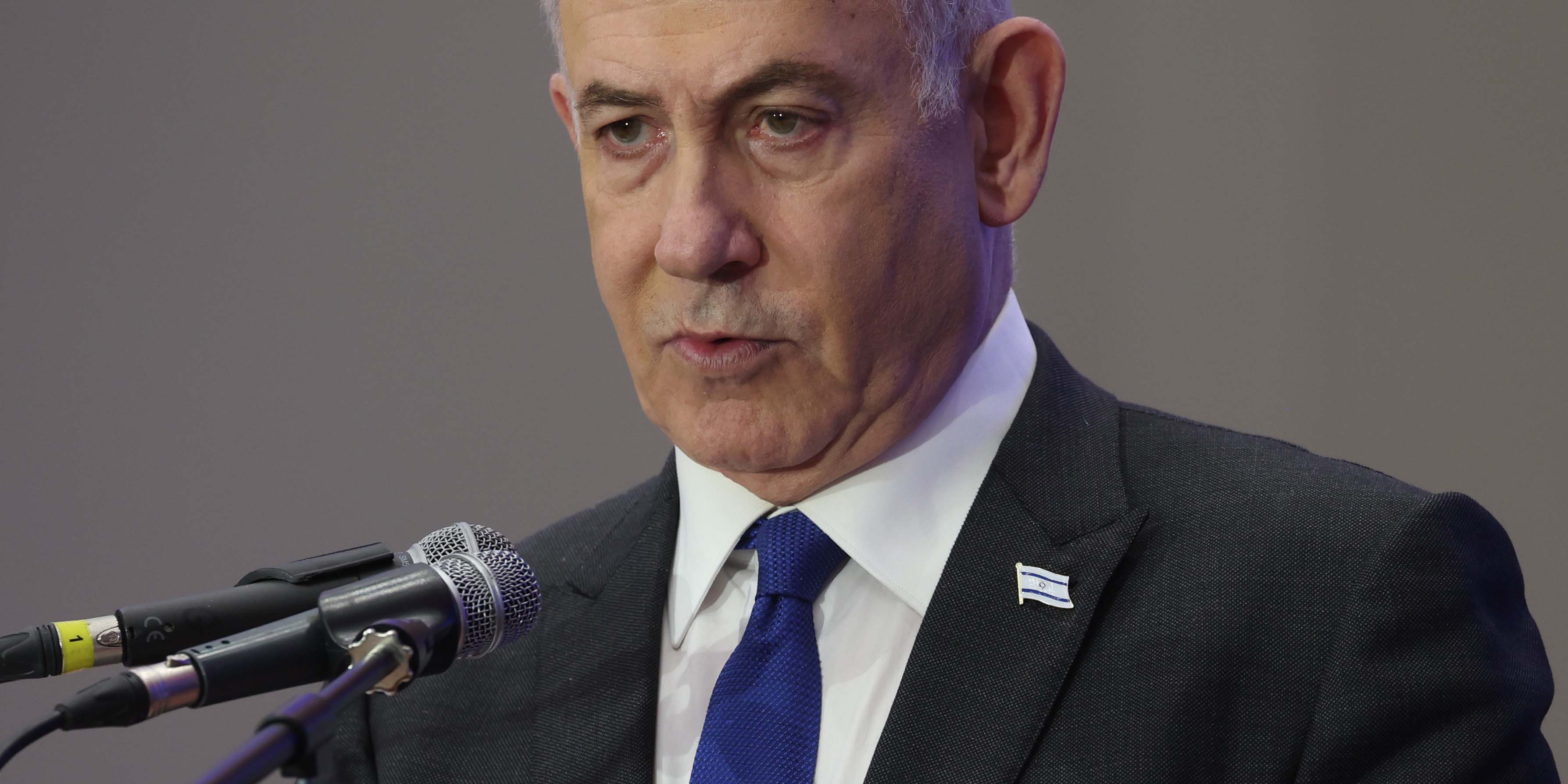Hezbollah stepped up its aerial assault across the Lebanese border into northern Israel, saying they fired more than 200 missiles and a “swarm of drones” at Israeli army positions.
Australian Senator Fatima Payman has quit the governing Labor Party to sit as an independent legislator over Prime Minister Anthony Albanese’s position on the Israel-Hamas conflict and Palestinian statehood.
Israel mulls over Gaza ceasefire deal as Hezbollah fires rockets
Israel was weighing a response from Hamas in the long-stalled talks over a ceasefire deal in Gaza, while weathering an intense rocket attack from Hezbollah as fighting escalated across the Lebanese border.
Prime Minister Benjamin Netanyahu’s office approved the departure of a negotiating team to hold talks on the release of hostages after the proposal from Iran-backed Hamas. The development was the most promising sign in several weeks that a pause in hostilities could be on the cards after nearly nine months of war.
At the same time, Hezbollah militants stepped up their aerial assault across the Lebanese border into northern Israel, saying they fired more than 200 missiles and a “swarm of drones” at Israeli army positions. The group said it was responding to Israel’s assassination of a senior commander on Wednesday. Sirens went off as far south as Acre, which is rare, and shrapnel from an intercepted missile hit a mall in the city.
Read more: Israel and Hezbollah lurch closer to full-blown war in Lebanon
The escalating skirmishes between Israel and Hezbollah were raising fears about a full-blown regional conflict that could draw in the US and Iran. The militant group is the most powerful of Tehran’s allied proxy groups and fought a war with Israel in 2006.
The two sides have been trading fire since the start of the war in Gaza, when Hezbollah launched rockets in solidarity with Hamas. The Lebanon-based group, which like Hamas is supported by Iran and designated a terrorist organisation by the US, has said it won’t stop until Israel ceases its campaign in Gaza.
The worsening tensions have weighed on Israeli bonds and helped push up oil prices in the past month.
A Hamas official, who asked not to be identified discussing private deliberations, said the new ceasefire proposal remained in line with the group’s longstanding demands, including the retreat of Israeli forces and the return of displaced civilians to their homes in Gaza. However, the new offer doesn’t insist on a full withdrawal of Israeli troops in the initial stage, Channel 13 said, citing an Israeli source it didn’t identify.
While light on detail, the reports suggested Hamas and Israel may be edging closer to an agreement that would at least bring fighting to a temporary halt. Biden released a three-part peace plan at the end of May that neither side has so far seemed willing to adopt in full, partly because Hamas insisted on the permanent departure of Israeli troops.
Israel has resisted that demand, saying the military won’t end its campaign until Hamas is completely eradicated as a military organisation. Netanyahu’s government has committed to the idea of a temporary ceasefire as a way to release hostages seized on 7 October, when Hamas fighters attacked the country’s south and triggered the conflict.
Hamas killed 1,200 people in Israel on 7 October and took about 250 hostages. Around 120 remain in captivity, although at least 40 are believed to be dead.
Israel’s retaliatory military campaign has killed more than 37,000 Palestinians, according to the Hamas-run health authority in Gaza, which doesn’t differentiate between civilians and combatants. The Israeli military has destroyed large swathes of the enclave and provoked a humanitarian crisis, according to the United Nations.
Australian senator quits Albanese’s party over Palestine stance
Australian Senator Fatima Payman has quit the governing Labor Party to sit as an independent legislator over Prime Minister Anthony Albanese’s position on the Israel-Hamas conflict and Palestinian statehood.
Payman, at a press conference on Thursday, said she was compelled to leave the government as a result of Labor’s “indifference to the greatest injustice of our times”.
Her departure further complicates Albanese’s path to re-election at a vote due to be held by May 2025. The government has struggled to control rising discontent over the Israel-Hamas war, balancing calls for greater action against rising anti-Semitism with agitation from left-wing parties and the country’s large Muslim community to take a stronger stance in support of Palestine.
“I know how it feels to be on the receiving end of injustice. My family did not flee from a wartorn country, to come here as refugees, for me to remain silent when I see atrocities inflicted on innocent people,” she said. Payman’s family arrived in Australia as refugees from Afghanistan. She was the first Muslim woman to wear a hijab in the Senate.
Payman is also the first Australian legislator to break with their party formally as a result of the Israel-Hamas war. The senator first signalled her dissatisfaction with the government’s stance on the conflict when she voted in favour of a Greens Party motion for the Australian Senate to recognise the state of Palestine on Tuesday last week.
Labor Party legislators must all vote as directed by the leadership, and it has been more than three decades since anyone broke ranks. While Albanese signalled he was prepared to allow Payman to stay in the party, breaking with tradition, by Wednesday it was clear that the senator was planning to leave Labor.
Albanese’s center-left government has called for a ceasefire in Gaza, opposed the invasion of Rafah in southern Gaza and voted in the UN in favour of Palestinian representation.
Still, dissatisfaction among Muslim voters has left Labor worried about a potential backlash in the elections. Several Australian ministers in usually safe seats have large Muslim populations. The government holds power by a slim majority of just two seats. DM
Read more in Daily Maverick: Middle East Crisis news hub





